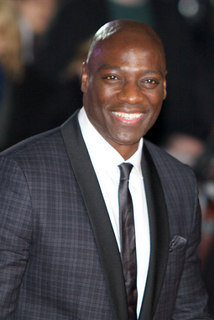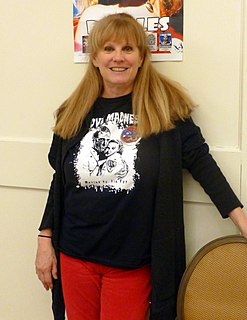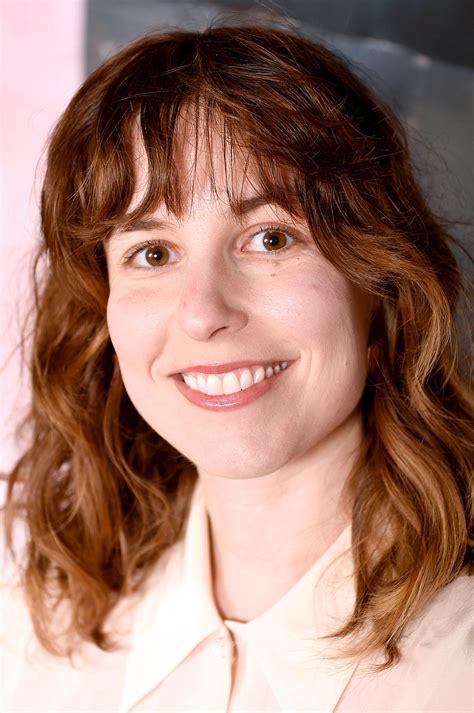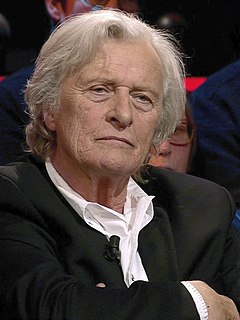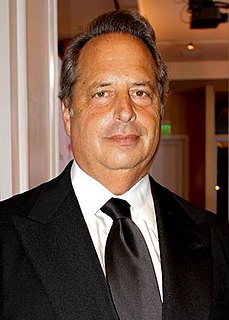A Quote by Adewale Akinnuoye-Agbaje
I remember in the Carpenter version, you got acquainted with the characters and really knew them. It was a real character piece. Each actor was serviced in the movie, and we tried to do that in this movie as well. I like the fact that there was a European, first-time director. I'd known of him because I'm from Europe. I knew him as a commercial director and thought one of his commercials was great. I thought it was an interesting take on such a big-budget cult classic.
Related Quotes
We made 'Mickey and the Bear' with barely any money with a first-time director, a first-time director of photography, and a crew who had just graduated from NYU film school. We were all very much in this together for the first time. There's no famous actor or big explosions. It's not a Marvel movie. I thought nobody was going to see this film.
I did Our Winning Season movie that Joe Roth produced, and Joe Ruben, who did Sleeping With The Enemy. He's a really cool director. That's where I met husband Dennis Quaid. Dennis and I met on location in Georgia, and I always thought that was a really great movie. That movie should be included, because it's a really terrific. It's a trite saying, but it's a real, great coming-of-age piece, and all the actors are wonderful.
I have watched Brock Lesnar for a really long time and I thought I knew how strong he was, I thought I knew how fast he was. Being in the ring with him, he is a completely different animal. He is a beast. They call him the Beast Incarnate and that is real. Whether you are in the Octagon with him trading fists, or in the ring trading German suplexes it is on another level. It was a pleasure and I am glad I got to be in the ring with him and i think I proved to the entire world I can hang with the guy.
A lot of people started asking me about this woman director thing, which I never thought about before. And I'd never really thought about how there aren't really many female directors. I knew it, but I'd never really sat down and thought about the implications of that, and what it meant for a woman to make a movie, and how it's viewed differently when a woman makes a movie about women.
I don't know if you hear this often but I would say The Razor's Edge (loosely based on a great W. Somerset Maugham novel). This was Bill Murray's first dramatic role so everyone thought he stunk in this deep character but I thought he and the movie were great. The movie takes place over decades so you see Murray's character go from goofy playboy all the way to wiser, older person. It's basically a movie version of the journey I described.
The director is the most important because, ultimately, as an actor, when you watch a movie, it looks like an actor is giving a performance, and they kind of are. But, what's actually happening is that an actor has given a bunch of ingredients over to a director, who then constructs a performance. That's movie-making.
I've never acted before in a movie I've directed. This felt like the time to do it just because the " Leaves of Grass" movie itself is so much of a platform for the lead actor. It's really written for an exciting performance and it really depends on the audience watching an extraordinary actor having a great time pulling off this feat. It makes sense to me as a director to act in support of that.
American Graffiti was the first movie where the director let me have any input. It was the first time anyone ever listened to me. George thought my character should have a crew cut, but I wasn't happy with that idea. I'd always had pretty long hair back then - in college, particularly - so I told George my character should wear a cowboy hat. George thought about it and he remembered a bunch of guys from Modesto, California, who cruised around, like my character, and wore cowboy hats, so it turned out that it actually fit the movie.
Big Fish was the first movie that we worked on together, and I had already written it. We had another director, but that director didn't do it. So, it was just a Hail Mary to Tim, and Tim said that he wanted to do it and I was like, "That's fantastic!" But, there wasn't a lot of collaboration because he knew what he wanted to do and just did it. There were very minor changes for Big Fish.
The truth is that filmmaking is not really an actor's medium; it's really a director's medium, so all I can really control is the character that I'm playing. So I try to look for characters that are interesting and engaging and different than what I've done before and hopefully it becomes a good movie.
I knew that's where I was going. I knew we were going to Italy. You couldn't make this movie in America at this price. I knew it was going to be big. I knew there was going to be a ship involved and that there was going to be a set as big as the ship. I thought, well, here we go. But I knew that was where he was headed. He had been going this way for some time. All directors, once they have some success, they want to spend a whole heck of a lot of money. (Something else can't hear.)
I think one third of my work is with first-time directors because I think I should, you know? Really, the difference between a first-time director and a second- or third-time director - I mean there's no director who makes enough movies anyway - but if they're talented, they have it. And there is no movie that is perfect.
The director makes the movie. The director has to have the story in their head, has to know the style of the piece, has to answer questions from actors, design, set, lighting, every department throughout the pre-production, production, and post-production, because they've got it in their mind. They've got to know exactly what they want and what the style and story of the movie is. It's them. They make it.
